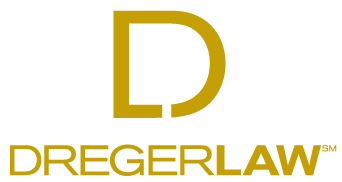Creation of a business requires a certain amount of trust. That’s because even if you’re the driving force behind your company, you still must rely on others to assist you. The reality is you just can’t perform every role yourself.
So, trust has to be part of the equation. Problems arise, however, when you trust the wrong people. Unfortunately, some individuals won’t hesitate to steal the confidential information behind your business and profit from it at your expense.
For this reason, it is crucial to protect your company from being raided by those within your circle of trust, by using non-disclosure agreements (NDAs) and restrictive covenants. In a recent post, I provided an overview of NDAs and restrictive covenants and I explained that they are designed to ensure that the secrets of your business do not get shared without your knowledge and consent. Now, I want to discuss these agreements in greater detail, so that you understand how they can be applied to give you the power to guarantee that the confidential information of your small business is never compromised.
NDAs
Typically, an NDA is a one-page document that you require be signed by anyone outside your company with whom you must reveal confidential information in order to explore how this individual can enhance your business. Once the document is signed, the person is bound by this contract and is prohibited from ever revealing the sensitive information that you’ve shared, even if you ultimately determine not to enter into a formal business relationship with this individual.
If, for whatever reason, this individual violates or even attempts to violate the NDA, you have the right to take the individual to court to secure a restraining order to keep the individual from disclosing the secrets of your business. The NDA also will allow you to have this individual pay you for all of the attorney fees that you incur to enforce the NDA. As a good business practice, always make sure that you clearly explain this aspect of the NDA, so people are well aware from the start that there are dire consequences for ignoring the terms of the NDA.
Restrictive Covenants (Clauses)
In contrast to an NDA, a restrictive covenant is used with individuals that are already inside your company (i.e. employees) or non-employee individuals with whom you have decided to do business (i.e. independent contractors). But the idea behind a restrictive covenant is the same as the NDA, in that restrictive covenants are designed to protect the unauthorized disclosure of your business secrets without your knowledge. Restrictive covenants /clauses typically provide three separate protections:
- The Confidentiality Clause is similar to the NDA. Its purpose is to make sure that confidential information, such as sensitive financial information, customer lists and other trade secrets of your business (sometimes referred to as “intellectual property”), stays private. This keeps your competitors from using this sacred information to unlawfully gain a competitive advantage over your business.
- The Non-Conversion Clause is a natural follow-up to the non-disclosure. It states that once new employees or independent contractors have been given access to your intellectual property, they won’t attempt to steal your workers, suppliers or vendors. Basically, your staff is barred from trying to build a separate business for themselves of for one of your competitors, based on your ingenious ideas.
- The Non-Compete Clause is the final of these three essential protective documents. It tells your staff members that they cannot go out and compete with you in any form whatsoever. You want to make sure, after you have revealed the secrets of your business to trusted individuals that they won’t apply this key information, to their own company on your territory.
All three of the restrictive covenants can be easily embedded into an existing employment agreement. That way, every member of your staff, whether full-time or part-time, will fully understand that they have clear restrictions on what they can reveal to the outside world. Equally important, these employees or independent contractors will know that if they ignore these restrictions and instead, try to profit on the back of your business, the consequences of their violating the restrictive covenants will be severe. Just like with the NDA, their violations will expose them to serious court action and personal judgments, separate from being fired.
When you give the restrictive covenants to an independent contractor or someone whose services you’ve hired from outside your company, the restrictions should be part of your Independent Contractor Service Agreement with this individual or theses restrictions may be contained in a free-standing separate two-page document.
Duration
Non-compete clauses remain in effect for three to five years after the employee relationship ends. Consequently, the covenant serves as a meaningful deterrent, as it blocks this person from interfering with your business and stealing your clients for a significant period of time.
Even harsher, is the duration of the confidentiality clause. This one is typically for life. That means that the people to whom you have revealed all of your trade secrets, can never share this information with anyone without your authorization, except under extreme circumstances (i.e. court order).

